- O Wesley Allen Jr - Ronald B Allen - Montse Alvarado - Oscar Amaechina - John Amanchukwu - Terry Amann - Matthew Lee Anderson - Thabiti Anyabwile - Femi Aribisala - Kate Armas - Joshua Arnold - Rodney Arnold -
==Dr. O Wesley Allen Jr======
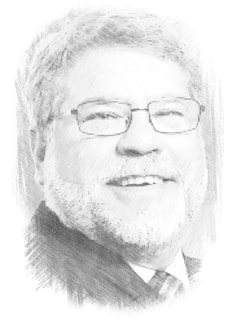 Dr O Wesley Allen Jr
Dr O Wesley Allen Jr
Differences in religious, physical, psychological, social, and political contexts call for different sorts of homiletical analogies and/or applications. I argue that such a radical shift in our socio-political situation as has occurred with the election of someone whose campaign included a degree of bigotry and hate speech we have not witnessed in a presidential run since the likes of George Wallace requires that preachers must strive to shape new analogies and applications of the gospel in their sermons or fail to serve the full relevance of the gospel.
Second, there is also a sense in which I agree with that element of logic that I presume to be behind the comment that it is appropriate to preach the gospel in every era—that is, that the gospel is eternal and unchanging regardless of the historical circumstances. I would certainly argue that at the core of the gospel is an ethic of love of neighbor that should be preached in every era. Had it been preached fully and forcefully in the era leading up to the 2015-16 election cycle, then there would have been no way so many churchgoers could have played such a large role in putting into the White House a candidate and his staff who use such vile and hateful language in service to racism, homophobia, ableism, Islamophobia, and sexism! The Christian ethic goes far beyond the weak standards of political correctness in its demands on the way we view and treat others, and Christians should strive to elect leaders whose speech and actions most reflect that ethic.
Notice, I am not making an argument that Christians must be Democrats or Republicans, conservatives or progressives. I am not concerned, in this instance, with whether the federal government should be larger or smaller. I certainly recognize that Christians can come down on different sides of policy debates specifically because of their Christian faith.
But I struggle to understand how those who claim to embrace the radical ethic of the Christian faith—the gospel ethic of caring for the disenfranchised, marginalized, and oppressed “others” of society—can claim to have voted for Trump out of Christian values when there were other Republican and Democratic candidates from whom to pick. Voters are used to choosing between “the lesser of evils,” but there is no serious Christian standard by which Trump can be argued to be that choice.
I certainly believe that books promoting the proclamation of the gospel in relation to any age defined by different forces would be appropriate. Perhaps every four years we should get scholars on different sides of the theo-political spectrum to write such books. But scholars and preachers across the whole range of theo-political positions should be on the same page when it comes to responding to the person in the most powerful office in the world making fun of the disabled, stereotyping Mexican immigrants as rapists and drug dealers, appointing advisors who have published hate speech against African Americans and homosexuals, and feeling he has the right to assault women simply because he is a celebrity.
--Dr O. Wesley Allen Jr; Faith Forward; Preaching in the Era of Trump 2.27.17
Second, there is also a sense in which I agree with that element of logic that I presume to be behind the comment that it is appropriate to preach the gospel in every era—that is, that the gospel is eternal and unchanging regardless of the historical circumstances. I would certainly argue that at the core of the gospel is an ethic of love of neighbor that should be preached in every era. Had it been preached fully and forcefully in the era leading up to the 2015-16 election cycle, then there would have been no way so many churchgoers could have played such a large role in putting into the White House a candidate and his staff who use such vile and hateful language in service to racism, homophobia, ableism, Islamophobia, and sexism! The Christian ethic goes far beyond the weak standards of political correctness in its demands on the way we view and treat others, and Christians should strive to elect leaders whose speech and actions most reflect that ethic.
Notice, I am not making an argument that Christians must be Democrats or Republicans, conservatives or progressives. I am not concerned, in this instance, with whether the federal government should be larger or smaller. I certainly recognize that Christians can come down on different sides of policy debates specifically because of their Christian faith.
But I struggle to understand how those who claim to embrace the radical ethic of the Christian faith—the gospel ethic of caring for the disenfranchised, marginalized, and oppressed “others” of society—can claim to have voted for Trump out of Christian values when there were other Republican and Democratic candidates from whom to pick. Voters are used to choosing between “the lesser of evils,” but there is no serious Christian standard by which Trump can be argued to be that choice.
I certainly believe that books promoting the proclamation of the gospel in relation to any age defined by different forces would be appropriate. Perhaps every four years we should get scholars on different sides of the theo-political spectrum to write such books. But scholars and preachers across the whole range of theo-political positions should be on the same page when it comes to responding to the person in the most powerful office in the world making fun of the disabled, stereotyping Mexican immigrants as rapists and drug dealers, appointing advisors who have published hate speech against African Americans and homosexuals, and feeling he has the right to assault women simply because he is a celebrity.
--Dr O. Wesley Allen Jr; Faith Forward; Preaching in the Era of Trump 2.27.17
==montse alvarado======

Montserrat Alvarado was born in Mexico City, Mexico and great up in Miami, Fl. She has worked at the Becket Fund for Religious Liberty since 2009 and currently serves as its VP & Executive Director. She was profiled by the Wall Street Journal’s Weekend Edition with the following introduction: “a defender of all religion, on the front lines of America’s culture wars.” Montse serves on the board of the Patients Rights Action Fund– the leading advocate against the legalization of assisted suicide, and served on the Montgomery County Commission for Women in Maryland. She is a lay consultant to the USCCB’s Religious Liberty Committee and although not attorney, she “plays one on TV” advocating for Becket clients on major television and radio networks. She has a B.A. from Florida International University and a Master’s from George Washington University.
Jan 23, 2023: Catholic News Agency: Montse Alvarado Named President and COO of EWTN News
Mark Rienzi, president of The Becket Fund for Religious Liberty, praised Alvarado as “an essential part of Becket’s growth and success for more than a decade.” Said Rienzi, “EWTN is welcoming a proven executive known for team-building impact and dedication to mission.”
Mark Rienzi, president of The Becket Fund for Religious Liberty, praised Alvarado as “an essential part of Becket’s growth and success for more than a decade.” Said Rienzi, “EWTN is welcoming a proven executive known for team-building impact and dedication to mission.”
March 3, 2021: National Catholic Register: EWTN News to Launch Weekly Discussion Show
On Friday, EWTN News will launch a new weekly discussion show EWTN News In Depth, covering the intersection of faith and current events. Montserrat “Montse” Alvarado, a Hispanic Catholic who also serves as Vice President and Executive Director of the Becket Fund for Religious Liberty, will be hosting the hour-long discussion program.
On Friday, EWTN News will launch a new weekly discussion show EWTN News In Depth, covering the intersection of faith and current events. Montserrat “Montse” Alvarado, a Hispanic Catholic who also serves as Vice President and Executive Director of the Becket Fund for Religious Liberty, will be hosting the hour-long discussion program.
==ronald b Allen======
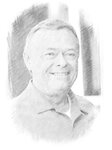 Ronald B Allen
Ronald B Allen
"Lamentations is one of the most highly crafted of all biblical books, the Hebrew poetry developed in a complex acrostic pattern. It seems as though the very crafting of the poem was an outworking of his [Jeremiah's] grief, as a grieving mother might fashion a collage of pictures of her deceased child."
--Ronald B. Allen, A Shelter in the Fury, p. 72
==oscar amaechina======
Oscar Amaechina is the president of Afri-Mission and Evangelism Network, Abuja, Nigeria. He has directed and supervised several research projects aimed at producing missiological strategies to enhance the work of missions in Nigeria and beyond. He has trained and graduated many missionaries in Afri-Mission Institute Of Missionary Studies. He is a Teacher and Evangelist by calling. Oscar is married to Josephine, also a minister of the gospel and co-worker in the missionary mandate. He is the Author of the book The Mystery Of The Cross Revealed. He is an Op-ed contributor with Christian Post.
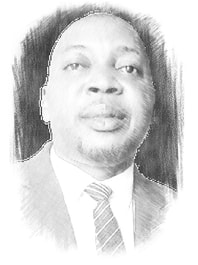 Oscar Amaechina
Oscar Amaechina
The Apostle Paul was emphatic when he warned the Philippian Church to be careful of this group of people. "For many, of whom I have often told you and now tell you even with tears, walk as enemies of the cross of Christ"(Philippians 3:18). They pretend to be godly but secretly work against the Gospel. They oppress and secretly persecute those who love and preach the cross.
Jesus also warned His disciples to be careful of those who are demonic but parade themselves as angels of light: "Watch out for false prophets. They come to you in sheep’s clothing, but inwardly they are ferocious wolves" (Mathew 7:15). In our time, there are similar false prophets, and their mode of operation has never changed.
"But there were also false prophets among the people, just as there will be false teachers among you. They will secretly introduce destructive heresies, even denying the sovereign Lord who bought them — bringing swift destruction on themselves" (2 Peter 2:1). There are now false teachers whose mandate is to introduce and teach errors that will take Christ out of the center of Christianity and place Him in the margin or remove Him altogether. --Oscar Amaechina; Christian Post: Beware of false prophets and false brethren 2.24.22
Jesus also warned His disciples to be careful of those who are demonic but parade themselves as angels of light: "Watch out for false prophets. They come to you in sheep’s clothing, but inwardly they are ferocious wolves" (Mathew 7:15). In our time, there are similar false prophets, and their mode of operation has never changed.
"But there were also false prophets among the people, just as there will be false teachers among you. They will secretly introduce destructive heresies, even denying the sovereign Lord who bought them — bringing swift destruction on themselves" (2 Peter 2:1). There are now false teachers whose mandate is to introduce and teach errors that will take Christ out of the center of Christianity and place Him in the margin or remove Him altogether. --Oscar Amaechina; Christian Post: Beware of false prophets and false brethren 2.24.22
 Oscar Amaechina Files
Oscar Amaechina Files
In 2 Corinthians 11:26, Paul mentions false brethren in the list of dangers he faced on his missionary journeys. There are many of us who have escaped their manipulations, but the dangers they pose to the faiths of many are a daily phenomenon. I personally have suffered so much in the hands of false brethren who claim to be custodians of the Gospel. I have been wounded so severally that sometimes I resort to solitude and even contemplate quitting my ministry. Many in the Church have been deceived because they’ve been often taught that everyone in the visible Church is a true believer. "One day the angels came to present themselves before the LORD, and Satan also came with them" (Job 1:6). Sadly, the devil oftentimes attends church services. Every believer should ask the Holy Spirit for the gift of discernment.
--Oscar Amaechina; president of Afri-Mission and Evangelism Network, Abuja, Nigeria. 2.24.22
--Oscar Amaechina; president of Afri-Mission and Evangelism Network, Abuja, Nigeria. 2.24.22
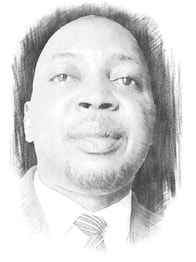 Oscar Amaechina
Oscar Amaechina
The Apostle Paul was emphatic when he warned the Philippian Church to be careful of this group of people. "For many, of whom I have often told you and now tell you even with tears, walk as enemies of the cross of Christ"(Philippians 3:18). They pretend to be godly but secretly work against the Gospel. They oppress and secretly persecute those who love and preach the cross. Jesus also warned His disciples to be careful of those who are demonic but parade themselves as angels of light: "Watch out for false prophets. They come to you in sheep’s clothing, but inwardly they are ferocious wolves" (Matthew 7:15). In our time, there are similar false prophets, and their mode of operation has never changed. --Oscar Amaechina; Christian Post; 2.24.22
==john amanchukwu======
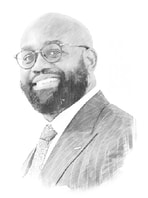
John Kanayochukwu Amanchukwu is a graduate of North Carolina State University, where he played football under Coach Chuck Amato. John received a master’s degree from Liberty University in Christian Ministry. He has been a youth pastor for fifteen years. Over the past four years, John has led a 40-week prayer walk for Love Life at one of the busiest abortion clinics in the Southeast. His wife is Crystal and they have three children
John Kanayochukwu Amanchukwu is a graduate of North Carolina State University, where he played football under Coach Chuck Amato. John received a master’s degree from Liberty University in Christian Ministry. He has been a youth pastor for fifteen years. Over the past four years, John has led a 40-week prayer walk for Love Life at one of the busiest abortion clinics in the Southeast. His wife is Crystal and they have three children
June 12, 2023: Word & Way: With Turning Point Faith, Pastors Use Politics as a Church-Growth Strategy
Kirk followed up by saying that TPUSA could connect them with speakers for their church gatherings such as the Rev. John Amanchukwu, a young adult pastor at Upper Room Church of God in Christ in North Carolina and outspoken opponent of abortion who has emerged as a conservative Black evangelical voice. Amanchukwu told RNS that as he and his senior pastor grew more visible since 2020, attendance at their church “exploded,” taking in people who “transitioned from other ministries that went woke.”
Kirk followed up by saying that TPUSA could connect them with speakers for their church gatherings such as the Rev. John Amanchukwu, a young adult pastor at Upper Room Church of God in Christ in North Carolina and outspoken opponent of abortion who has emerged as a conservative Black evangelical voice. Amanchukwu told RNS that as he and his senior pastor grew more visible since 2020, attendance at their church “exploded,” taking in people who “transitioned from other ministries that went woke.”
==terry amann===================
Pastor Terry Amann has pastored churches in New Jersey and Iowa for almost 27 years. Currently he is pastor at Church of the Way in Des Moines, Iowa. In addition to church ministry, he has served as a chaplain in prison, county jails, and juvenile detention centers for 10 years in Illinois and Iowa.
 Terry Amann
Terry Amann
“If he can extract himself from the legal morass that he's in, he'll be a force to be reckoned with. But it just remains to be seen how that's all going to go.............I would say they've learned from the first and second go-around. I'd say they're very highly organized and structured, and I think they'll be impressive.” --Pastor Terry Amann on Donald Trump & his campaign in Iowa 7.7.23
April 12, 2023: Bharat Times: Trump and Iowa evangelicals: A bond that is hard to break
“I believe, and I think many evangelical Christians understand, politics at that level is a blood sport. Donald Trump is fighting. That’s why he worked,” said Rev. Terry Amann of suburban Des Moines. “So, it’s not our role to judge him.”
“I believe, and I think many evangelical Christians understand, politics at that level is a blood sport. Donald Trump is fighting. That’s why he worked,” said Rev. Terry Amann of suburban Des Moines. “So, it’s not our role to judge him.”
==matthew lee anderson=========
Matthew Lee Anderson is an Assistant Research Professor of Ethics and Theology at Baylor University’s Institute for Studies of Religion and the founder of Mere Orthodoxy. You may read more at matthewleeanderson.com.
The Evangelical Imagination: How Stories, Images, and Metaphors Created a Culture in Crisis
In one respect, Prior’s effort is to repristinate evangelicalism by disentangling the elements of the evangelical social imaginary “that are truly Christian” so they “can be better distinguished from those that are merely cultural.” Such an effort requires momentarily escaping the blindfold of the metaphors, stories, and images that mold our pre-cognitive intuitions and dispositions in order to see what is real. American evangelicals have long been proficient at introspective assessments of our own movement. Since the mid-1980s, sociologists like James Davison Hunter have diagnosed evangelicalism’s contemporary virtues and pathologies, while thinkers like Mark Noll and David Bebbington have sought to interpret the movement through a historical lens.
(Matthew Lee Anderson/Public Discourse 11/13/23)
Read More>>>>>
In one respect, Prior’s effort is to repristinate evangelicalism by disentangling the elements of the evangelical social imaginary “that are truly Christian” so they “can be better distinguished from those that are merely cultural.” Such an effort requires momentarily escaping the blindfold of the metaphors, stories, and images that mold our pre-cognitive intuitions and dispositions in order to see what is real. American evangelicals have long been proficient at introspective assessments of our own movement. Since the mid-1980s, sociologists like James Davison Hunter have diagnosed evangelicalism’s contemporary virtues and pathologies, while thinkers like Mark Noll and David Bebbington have sought to interpret the movement through a historical lens.
(Matthew Lee Anderson/Public Discourse 11/13/23)
Read More>>>>>
==Thabiti Anyabwile==============
Thabiti Anyabwile (MS, North Carolina State University) is a pastor at Anacostia River Church in southeast Washington, DC. He’s the author of several books, including What Is a Healthy Church Member?, Finding Faithful Elders and Deacons, Reviving the Black Church, a
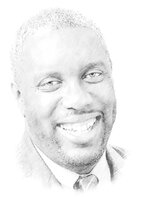 Thabiti Anyabwile
Thabiti Anyabwile
But being “gospel people” comes with a peculiar pitfall. It’s possible to be the kind of “gospel people” who use appeals to “the gospel” as a way of escape rather than engagement. Let’s call this “gospel escapism,” that attempt to flee from either the banality or brutality of life by superficial recourse to the gospel. These “gospel people” use the word “gospel” in their writing and speeches a lot. They think simply mentioning the word is the same thing as applying the various truths of Jesus’ life and work to the exigencies of life. It’s escapism because it fails to see in any deep way how Jesus’ Incarnation, active obedience, sacrificial and substitutionary death, resurrection, heavenly session and imminent return for sinners speaks to the troubled life of the sinner in any way other than deliverance into another world. --Thabiti Anyabwile; Gospel Coalition; Spotting “Gospel Escapism” in Evangelical Circles 12.1.14
==femi aribisala============= |
Dr. Femi Aribisala was born on April 12 1952 in Akure, Ondo State, Nigeria. He is from Ibadan, Oyo State, He went to Government College, Ibadan from 1964-1968; St. George’s English School, La Storta, Rome, Italy from 1969-1972; and the Institut Internationale d’Études Francaises, Rambouillet, France from 1971-1972. He has a B.A. in History and Politics from University of Warwick, Coventry, England (1972-1975); M.A. in International Relations from School of Advanced International Studies, Johns Hopkins University, Washington D.C., United States (1975-1977); and a Ph.D. in International Relations from Oxford University, Oxford, England (1978-1981).
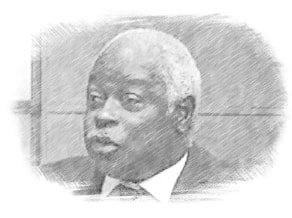 Femi Aribisala Files
Femi Aribisala Files
Jesus says to His disciples: “You did not choose Me, but I chose you and appointed you that you should go and bear fruit, and that your fruit should remain, that whatever you ask the Father in My name He may give you.” (John 15:16).
We blundered at the first birth, presuming we were born to pursue our own dreams, have illustrious careers, make a lot of money, and make a name for ourselves. But now our Maker leaves nothing to conjecture. We are born again (a second time) to produce the fruits of righteousness which are by Jesus Christ. Philippians 1:11).
Peter writes our curriculum vitae. He says to the believer: “You are a chosen generation, a royal priesthood, a holy nation, (God’s) own special people, that you may proclaim the praises of Him who called you out of darkness into His marvelous light.” (1 Peter 2:9).
How do we proclaim the praises of God? Is it by what we have? Certainly not! Jesus says: “One’s life does not consist in the abundance of the things he possesses.” (Luke 12:15). We proclaim God’s praises by what we are. God says: I am what I am.” (Exodus 3:14). He does not say: “I am what I have.”
--Femi Aribisala
We blundered at the first birth, presuming we were born to pursue our own dreams, have illustrious careers, make a lot of money, and make a name for ourselves. But now our Maker leaves nothing to conjecture. We are born again (a second time) to produce the fruits of righteousness which are by Jesus Christ. Philippians 1:11).
Peter writes our curriculum vitae. He says to the believer: “You are a chosen generation, a royal priesthood, a holy nation, (God’s) own special people, that you may proclaim the praises of Him who called you out of darkness into His marvelous light.” (1 Peter 2:9).
How do we proclaim the praises of God? Is it by what we have? Certainly not! Jesus says: “One’s life does not consist in the abundance of the things he possesses.” (Luke 12:15). We proclaim God’s praises by what we are. God says: I am what I am.” (Exodus 3:14). He does not say: “I am what I have.”
--Femi Aribisala
==kate armas====================
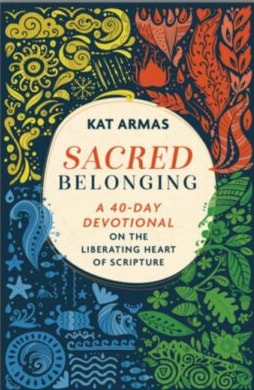
Our world is both stable and chaotic, balanced and dynamic. Both states exist together yet still affirm the truth that we are part of a web of diversity that needs every creature—from beetle to elephant to deciduous leaf—to function in its fullness. Caring about deforestation and the loss of animal species is a worthwhile endeavor because everything responds to everything else. What happens to the earth happens to us.
In Matthew’s Gospel, the story goes that when Jesus was dying, the earth went dark for three hours (27:45). At the moment he cried out and took his last breath, the land shook and the rocks split (27:51). Some interpreters might say this speaks to the supremacy of Jesus over creation, and maybe that’s true—particularly when read through a Western lens of hierarchy. But perhaps it’s more than that. In Colossians, Paul says that in Jesus all things are held together (1:17), so would it be farfetched to think that the cosmos would tumble into a kind of chaos at his death? I like to imagine that the earth was responding to her relationship to Jesus in a divine connection of sorts.
Through Jesus, God became one with us in this intricate web of life, experiencing alongside us the fullness of what it means to be human. Perhaps the death of Jesus is also a lesson about the interdependency of all things.
Indeed, nothing happens in our world that doesn’t affect something else. When wolves were eliminated, rivers changed course and bird species died out. When Jesus took his final breath, the earth shook and the rocks split. Our world and everything in it tell a story of belonging—a belonging established at the very beginning, in accordance with God’s desire for all of creation to be in concert together. --Kate Armas; Sacred Belonging; 2023
In Matthew’s Gospel, the story goes that when Jesus was dying, the earth went dark for three hours (27:45). At the moment he cried out and took his last breath, the land shook and the rocks split (27:51). Some interpreters might say this speaks to the supremacy of Jesus over creation, and maybe that’s true—particularly when read through a Western lens of hierarchy. But perhaps it’s more than that. In Colossians, Paul says that in Jesus all things are held together (1:17), so would it be farfetched to think that the cosmos would tumble into a kind of chaos at his death? I like to imagine that the earth was responding to her relationship to Jesus in a divine connection of sorts.
Through Jesus, God became one with us in this intricate web of life, experiencing alongside us the fullness of what it means to be human. Perhaps the death of Jesus is also a lesson about the interdependency of all things.
Indeed, nothing happens in our world that doesn’t affect something else. When wolves were eliminated, rivers changed course and bird species died out. When Jesus took his final breath, the earth shook and the rocks split. Our world and everything in it tell a story of belonging—a belonging established at the very beginning, in accordance with God’s desire for all of creation to be in concert together. --Kate Armas; Sacred Belonging; 2023
==joshua arnold======
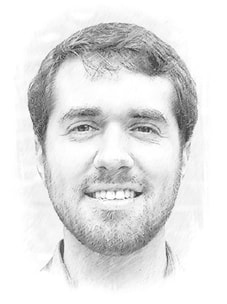 Joshua Arnold
Joshua Arnold
Ancient Israel had no legislature, as God had already given them a law. Nor were there executive officials, except when God called one for a specific purpose. Thus, ancient Israel’s government consisted primarily of judges — appointed by the people (Deuteronomy 16:18), raised up by God (Judges 2:16), or anointed as priest (Deuteronomy 19:17) or king (2 Samuel 8:15) — resolving disputes between private parties. In addition to judges, America has law enforcement officers and public prosecutors who are also charged with ensuring the law is justly enforced. So, while America is not under the Mosaic law, its basic principles of justice apply even more broadly in the American system.
The question is, what should the righteous do when “justice is turned back, and righteousness stands far away,” when “truth has stumbled in the public squares, and uprightness cannot enter” (Isaiah 59:14)? We should pray. That is, we should appeal from human injustice to the divine Judge.
What should we pray for? Scripture authorizes at least three pleas (seek earnestly, and you may find others) to offer up as we lament the prevalence of injustice. First, we should pray that justice officials would be saved, or at least that they would not molest Christians. Paul exhorts Timothy to pray “for kings and all who are in high positions, that we may lead a peaceful and quiet life, godly and dignified in every way. This is good, and it is pleasing in the sight of God our Savior, who desires all people to be saved and to come to the knowledge of the truth” (1 Timothy 2:2-4). --Joshua Arnold; Christian Post; Justice must be impartial: Biden vs. Trump treatment 8.8.23
The question is, what should the righteous do when “justice is turned back, and righteousness stands far away,” when “truth has stumbled in the public squares, and uprightness cannot enter” (Isaiah 59:14)? We should pray. That is, we should appeal from human injustice to the divine Judge.
What should we pray for? Scripture authorizes at least three pleas (seek earnestly, and you may find others) to offer up as we lament the prevalence of injustice. First, we should pray that justice officials would be saved, or at least that they would not molest Christians. Paul exhorts Timothy to pray “for kings and all who are in high positions, that we may lead a peaceful and quiet life, godly and dignified in every way. This is good, and it is pleasing in the sight of God our Savior, who desires all people to be saved and to come to the knowledge of the truth” (1 Timothy 2:2-4). --Joshua Arnold; Christian Post; Justice must be impartial: Biden vs. Trump treatment 8.8.23
==RODNEY ARNOLD======
July 14, 2023: Standard Newswire: Missionary Church USA Elects New, Youngest President
The Missionary Church USA elected its seventh president this week, marking a new era for the evangelical denomination based in Fort Wayne, Indiana.
Rev. Rodney Arnold of Knoxville, Tennessee was elected by delegates representing churches from across the country at the biannual SHIFT National Conference held in Orlando, Florida. At 40 years old, Rev. Arnold becomes the youngest president ever chosen by the denomination and the first from a southern state.
The Missionary Church USA elected its seventh president this week, marking a new era for the evangelical denomination based in Fort Wayne, Indiana.
Rev. Rodney Arnold of Knoxville, Tennessee was elected by delegates representing churches from across the country at the biannual SHIFT National Conference held in Orlando, Florida. At 40 years old, Rev. Arnold becomes the youngest president ever chosen by the denomination and the first from a southern state.
Affliction is a school of virtue; it corrects levity, and interrupts the confidence of sinning.
-Francis Atterbury, English Politician (1663-1732)
-Francis Atterbury, English Politician (1663-1732)






